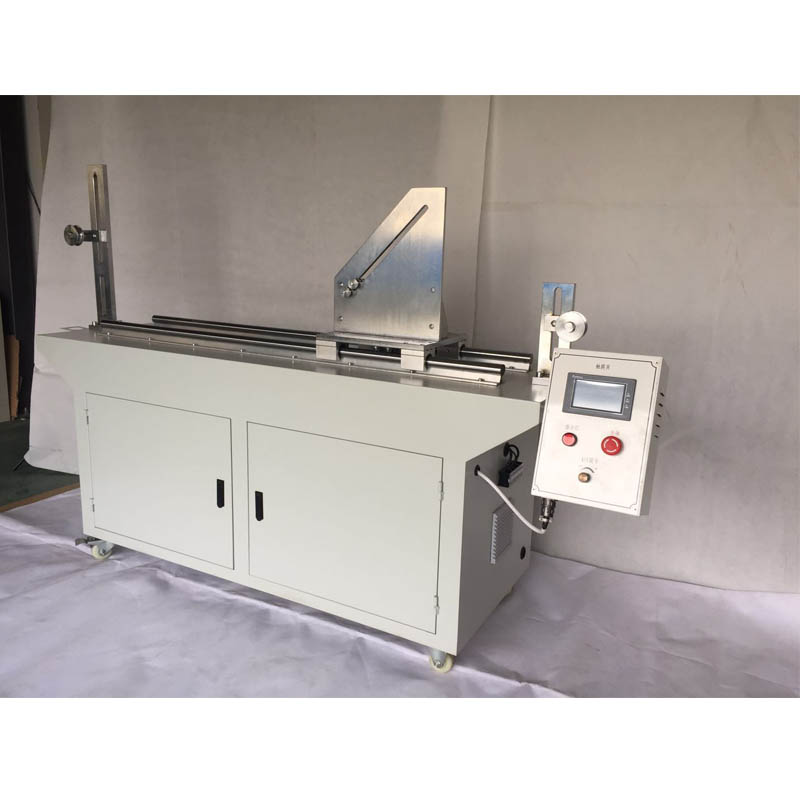electrical insulation resistance tester
Understanding Electrical Insulation Resistance Testers Importance and Applications
Electrical insulation resistance testers, commonly referred to as insulation resistance testers or megohmmeters, are essential tools in the electrical industry, ensuring the safety and reliability of electrical installations. These devices measure the resistance of electrical insulation, helping to determine whether insulation materials are functioning effectively and can withstand operational stresses.
What is Insulation Resistance?
Insulation resistance refers to the resistance offered by insulating materials to the flow of electric current. These materials are crucial in preventing electrical leaks, avoiding short circuits, and ensuring that electricity flows within intended pathways. Over time, insulation can degrade due to factors such as moisture, temperature fluctuations, mechanical stress, and chemical exposure, leading to reduced effectiveness. Testing the insulation resistance helps in identifying any potential failures before they can cause damage or hazards.
How Do Insulation Resistance Testers Work?
Insulation resistance testers work by applying a known voltage, typically between 250V and 5000V, to the insulation under test. The device measures the amount of leakage current that flows through the insulation, providing a resistance value in megohms (MΩ). Higher resistance values indicate better insulating properties, while lower values may signal issues such as moisture contamination, deterioration of insulation materials, or physical damage.
Most modern insulation testers have digital displays, making it easy to read and record the resistance values. They often come with additional features, such as automatic test voltage selection, polarity reversal, and memory functions for storing test results.
Importance of Regular Insulation Testing
1. Safety The primary purpose of insulation resistance testing is to enhance safety in electrical systems. Poor insulation can lead to electric shocks, equipment failure, and even fire hazards. By regularly testing insulation, potential risks can be identified and mitigated.
2. Preventive Maintenance Regular insulation resistance testing is crucial in preventive maintenance programs. By identifying trends in insulation resistance over time, maintenance teams can schedule repairs or replacements before critical failures occur.
electrical insulation resistance tester

3. Compliance Many industry standards and regulations mandate regular insulation resistance testing. Electricity providers, manufacturing facilities, and commercial buildings often need to comply with these standards to ensure the safety and reliability of their systems.
4. Equipment Longevity Proper insulation helps in extending the lifespan of electrical equipment. By detecting insulation issues early, operators can avoid costly repairs and ensure that equipment performs efficiently throughout its operational life.
Applications of Insulation Resistance Testers
Insulation resistance testers have various applications across multiple industries
- Power Generation and Distribution In power plants and substations, these testers are vital for assessing transformers, cables, and other electrical equipment to ensure efficient and safe operation.
- Manufacturing Assembly lines often involve heavy machinery that requires reliable electrical insulation. Regular testing ensures that equipment operates safely and with minimal downtime.
- Electrical Contractors Professionals in the construction and maintenance of electrical systems utilize insulation resistance testers to validate the integrity of wiring and devices during installations and repairs.
- Renewable Energy As the renewable energy sector grows, insulation testing becomes essential for solar panels, wind turbines, and related technology, ensuring their safe and efficient operation.
Conclusion
Electrical insulation resistance testers are indispensable instruments in maintaining the safety, efficiency, and longevity of electrical systems. Regular testing helps in preventing accidents, ensuring compliance with regulations, and enhancing the reliability of electrical equipment. As technology continues to evolve, the tools used for insulation testing are becoming more sophisticated, offering advanced features that enhance user experience and accuracy. For anyone involved in electrical maintenance or safety, investing in a quality insulation resistance tester is not just recommended—it's essential.
-
Why the Conductor Resistance Constant Temperature Measurement Machine Redefines Precision
NewsJun.20,2025
-
Reliable Testing Starts Here: Why the High Insulation Resistance Measuring Instrument Is a Must-Have
NewsJun.20,2025
-
Flexible Cable Flexing Test Equipment: The Precision Standard for Cable Durability and Performance Testing
NewsJun.20,2025
-
Digital Measurement Projector: Precision Visualization for Modern Manufacturing
NewsJun.20,2025
-
Computer Control Electronic Tensile Tester: Precision and Power for the Modern Metal Industry
NewsJun.20,2025
-
Cable Spark Tester: Your Ultimate Insulation Assurance for Wire and Cable Testing
NewsJun.20,2025
 Copyright © 2025 Hebei Fangyuan Instrument & Equipment Co.,Ltd. All Rights Reserved. Sitemap | Privacy Policy
Copyright © 2025 Hebei Fangyuan Instrument & Equipment Co.,Ltd. All Rights Reserved. Sitemap | Privacy Policy
